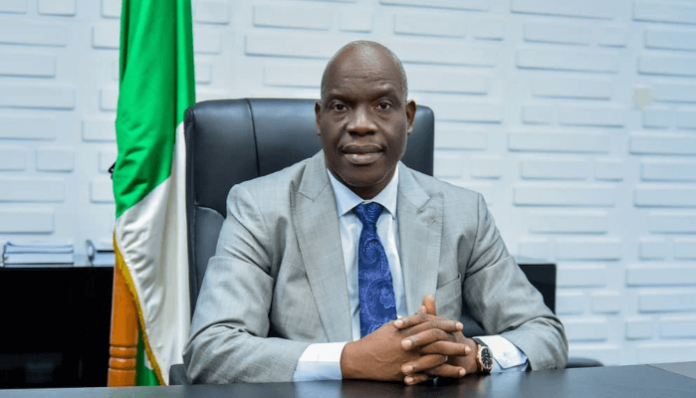Energy transition discussions should revolve around the implementation of a fair, equitable, and sustainable energy mix that entrenches the principles of inclusiveness and guarantees energy security, the Nigerian Upstream Regulatory Commission (NUPRC) has said.
The NUPRC Chief Executive, Gbenga Komolafe, disclosed this in a statement on Tuesday.
Mr. Komolafe said while deliberations on the global transition to renewable and sustainable energy are going on, proponents should consider the right of nations to harness their energy resources for their development goals.
The statement said that Mr. Komolafe made the remarks while speaking to participants at the Offshore Technology Conference held in Houston, Texas, United States.
He said policymakers and experts should also consider the freedom of nations to attain the right energy mix in multiple pathways and sustainable energy supply.
In his presentation on the Nigerian upstream sector, he said the perspective was relevant considering the momentum in the energy transition, the attendant changes in the energy economy, as well as the expectations of stakeholders on the implementation of the Petroleum Industry Act (PIA) 2021.
“These perspectives indicate a new direction of travel that fossil fuel-dependent economies needed to anticipate and prepare for,” he said
He explained that Nigeria has long recognised that the global shift towards decarbonised economies will lead to a structural decline in demand for unabated fossil fuels and that the increasing cost competitiveness of renewable energy sources will present key risks and challenges for fossil fuel-dependent economies.
“Chief among these is reduction in national revenue and consequential fiscal vulnerabilities that may arise therefrom.
“It was further recognized that reduction in fossil fuel revenue without sufficient time and support to manage macroeconomic risks and the structural transformation required to build a diversified, sustainable, and resilient economy, will be disadvantageous to the Nigerian economy,” he said.
Again, as a nation, Mr. Komolafe said Nigeria’s performance in terms of the Sustainable Development Goals (SDGs) is a very strong indicator that the energy transition policy for Nigeria should equitably be formulated within the context of improving the achievement of the SDGs.
“That is, reducing poverty and hunger, improving good health, well-being and quality education, achieving clean water and sanitation, creating decent work and economic growth, achieving improved environment through deployment of carbon capture technology amongst others.
“Aside from the SDGs challenges, we also have the world’s largest energy deficit, with an estimated 85 million Nigerians lacking access to grid-supplied electricity or clean cooking fuel,” he added.
This, he said, is equivalent to 43 percent of the population, a situation that results in an estimated annual economic loss of up to 2 percent of GDP.
Renewable Energy
Mr. Komolafe noted that renewable energy holds significant potential to alleviate these challenges, but absorption capacity issues limit the amount of variable power generation which can be accommodated by the grid.
“The Nigerian government was left with no choice but to reject the notion of a single pathway to net-zero, preferring instead the concept of ‘just’ energy transition which takes into cognizance the specific circumstances of each nation in developing the energy transition pathway that best achieves the environmental, social, political and economic objectives of the transition in that specific nation.
“Multiple pathways to energy transition should and must exist in order to ensure that no country is left behind in the process of achieving net zero by 2050. Accordingly, the government then declared natural gas as our transition fuel,” he said.






